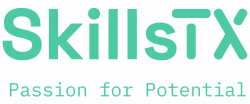In recent times our world has been impacted in ways we could not have foreseen or been ready for. In quick time, millions of individuals and hundreds of thousands of organisations have had to re-imagine the way that they interact with their employees and customers. How do we lessen the impact of these forced adaptions on businesses, performance and, of course, on employees – these are the main concerns for every organisations’ leadership.
Innovation in education has been accelerated for many individuals and organisations adapting to the current situation. But this is something we have all known for a long time – the need to move towards a learner-centric, not teacher-centric, education model.
Working remotely is becoming the norm from an organisational point of view. And this doesn’t work without a faster uptake of digital technology in their working style, a more collaborative approach between remote working teams, and an ability to access training and resources that might have been previously inaccessible because of geographical distance.
With everything that has happened over the past months, it feels impossible to predict what the world will look like next week, let alone next year. In this blog, we’ll explain how the partnership between ITSM Zone and SkillsTX can help your organisation and your teams cope with the change and develop the skills they need for the future.

Helping your organisation to develop new skills, increase innovation and agility
Regardless of how the situation develops, steps have to be taken now to help companies adapt and get ready for the future. Leaders and managers need to understand the skills they have in their organisation now, and what they might need in future. This will allow them to plan the mix of training, recruitment and development that will fill any gaps.
The president of SkillsTX, Matthew Burrows, says that things have changed and are unlikely to go back to how they were before. This means that existing roles/jobs will need a different balance of skills – so it’s definitely worth reviewing and updating your role profiles and job descriptions.

Matthew Burrows, SkillsTX President
According to ITSM Zone director Claire Agutter, company leaders should look after their people by supporting their well-being during this crisis. As well, leaders/managers should be clear on the skills their employees need for current and future roles, work with them to baseline their current skills and create individual development action plans.

Claire Agutter, ITSM Zone Director and Lead Tutor
Lockdown or not, organisations need to radically rethink their strategy and look at their investment priorities. We have already seen that organizations who have already invested in digital are adapting much more easily.
Could the way we work change forever?
If employees and companies have learned anything, it’s that they can survive and, more importantly, thrive in an entirely remote working environment.
How can the Skills Framework for the Information Age (SFIA) help organisations to identify, attract and develop the skills and talent they need?
Does the lockdown force digital transformation?
Even before the pandemic, reports suggested that 92% of companies were adopting a form of digital transformation. Some have referred to the pandemic as “forced digital transformation”, and it has certainly accelerated the need for many.
According to Matthew Burrows, during digital transformation, many companies fail to recognize that there are two different sets of skills that we need to consider – firstly, do we have the required skills to deliver the transformation, and secondly do we have the skills to operate the transformed operating model after we’ve finished the transformation project? These different stages will undoubtedly require a different mix of skills, so both situations need to be profiled and reflected in project plans and role profiles.
- Baseline the current skills of your workforce
- Identify the skills and experience necessary to deliver the transformation, and to operate post-transformation
- Look at the skills and experience gaps and risks
- Plan development of existing resources, and recruitment (permanent or temporary/contract resources) if necessary
Digital transformation is ultimately led by IT transformation; organisations will continue to change and the way that technology and IT teams support organisations will change. At ITSM Zone, we have seen changes within the service management industry. The necessity for businesses to adapt, change and deliver better services, all faster than ever before.
You can read more about how ITSM Zone and SkillsTX can help individuals here.






